Conversation with Jimin Yi Baek
Interview with the recipient of the July edition of MyMA Artist Grant, Jimin Yi Baek.
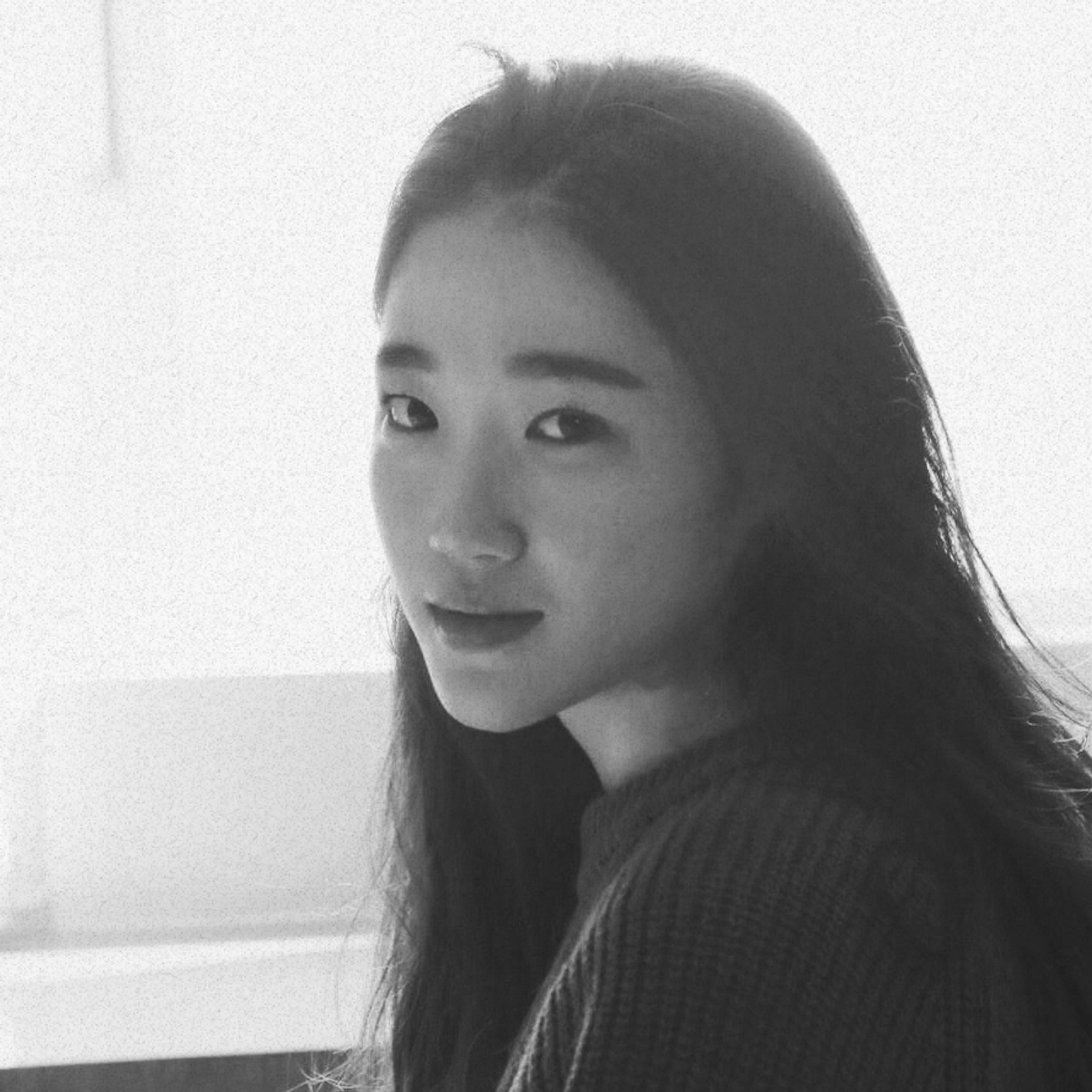
Congratulations are in order! In addition to winning the July MyMA grant, you recently graduated from the Pratt MFA program.
Thank you so much. Yes, winning the grant is awesome. It came at a really appropriate time, because I just graduated. It feels like I'm on the right track.
Can you tell us a bit about your practice?
I am a painter. The series that I'm working on is called "Idling Conversations." It's basically creating conversations without communication. It involves a lot of studying the already established visual and painting languages then taking authority away from them. So there will be conversation, but nothing is being communicated.
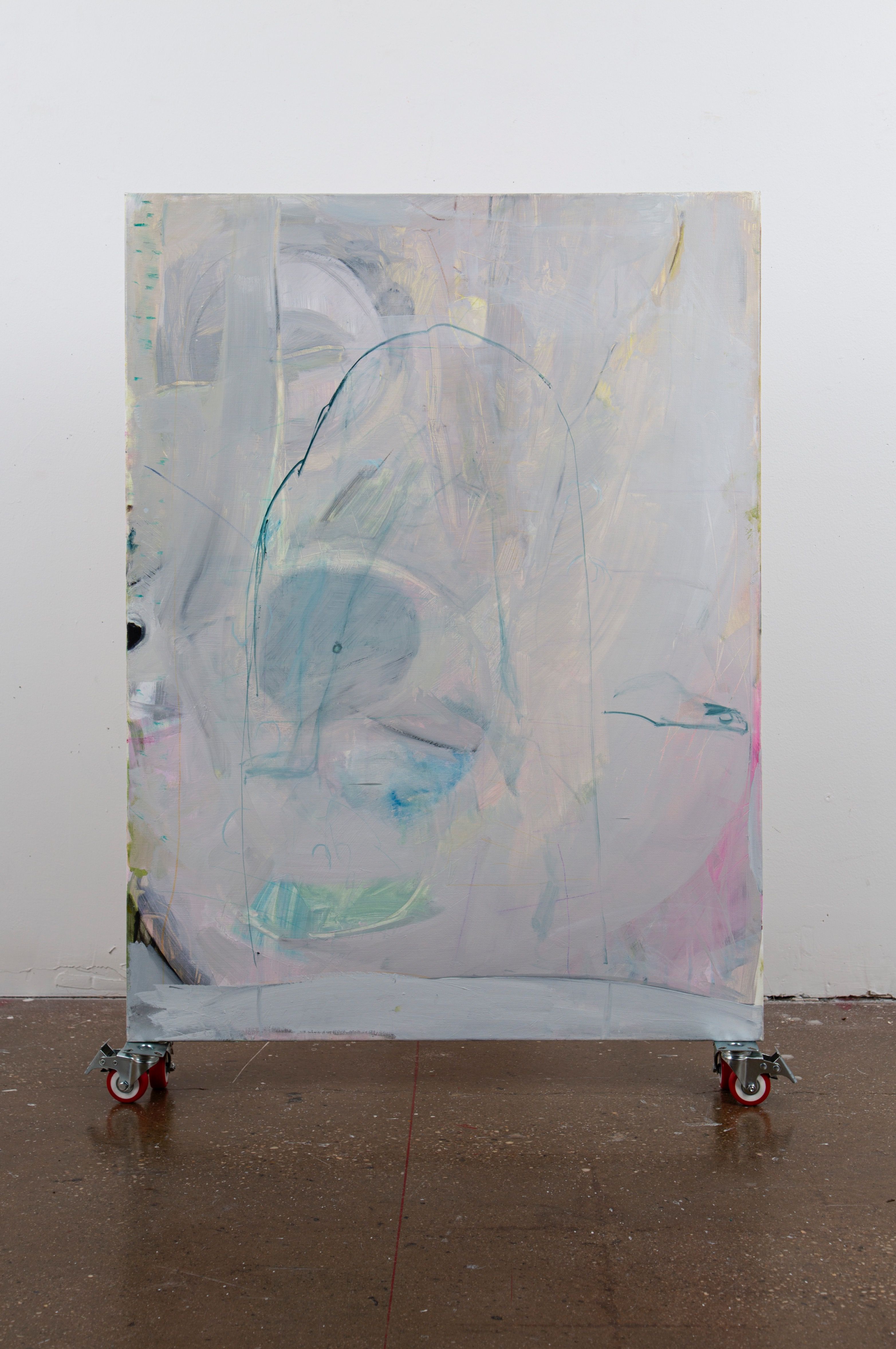
Oh, interesting. Can you tell us more.
The series is my attempt in liberating art from its fate as a communicative medium. It is an endeavor to bring back authority and agency into painting. How we determine success of most things is centered around efficiency and professionalism in today's world. I think the same is applied to art these days. Being expected to effectively deliver rich information, art is constantly exposed to the dangers of becoming mere replications of, or a tool for, existing and already circulating ideas and objects. To create a collective nothing, in terms of communication outcomes, leaving just the vacant yet testimonial activations of paintings, is the only autonomous act I dare to achieve through my work.
What does it mean to you personally?
My series is inspired by this play called "Waiting for Godot" by Samuel Beckett. In the play, there are two people conversing in gibberish and broken languages. They exchange movements that are not necessarily dances, but they become what facilitates their life. This to me, means that communication is not the ultimate premise of conversations. But it's easily presumed and expected to be so. They do this together too, in the play. Just the testimonial activation of conversations through coexistence becomes what the conversations are about.
So it's almost more about the act of connection rather than the act of what's being said in those connections. How do you start a painting?
Yes, exactly. It almost always starts with writing. Because I believe that to take away authority from visual and painting languages, you first have to give intentional power to them. So what I do is I take a strong metaphor from my writing and place it into my painting, a strong symbol so that it could then be destroyed.
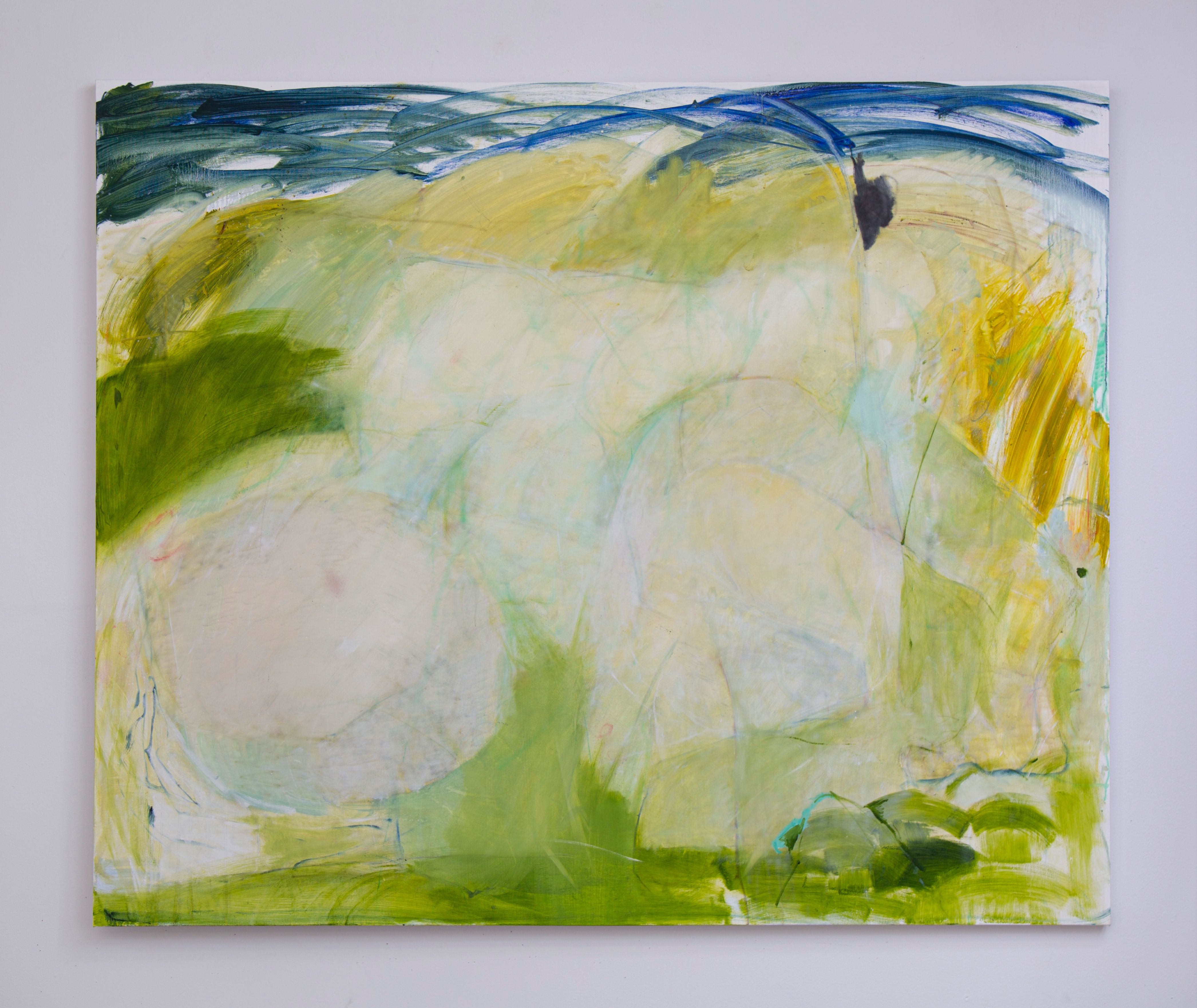
The idea of placing something in a painting to then destroy it is an interesting one. What was the last metaphor you used?
A bed; it's something that appears a lot in my paintings. To me, it symbolizes a certain experience that I had. But I don't think I should be sharing what's in my paintings because it'd be giving away something that I was intentionally destroying. But the bed is overshared already. So that's a secret I can give away.
Thank you for sharing that secret. It's fun to see the inner workings of how art grows into what it is. Are there any artistic rules or guidelines that you follow?
Oftentimes when I like a certain part of my painting too much, I'll intentionally cover it up. Those parts I like come from my habits I’ve acquired throughout my practice. I like to have constant doubts about my choices and taste. The only thing I can say with certainty is that anything too certain is likely to be wrong.
What's the best art advice you've received so far?
One of my professors from college, Song Dae Sup told me to “think deeply and visualize simply”, which really stuck with me. We are still in contact, I went to visit his studio last year.
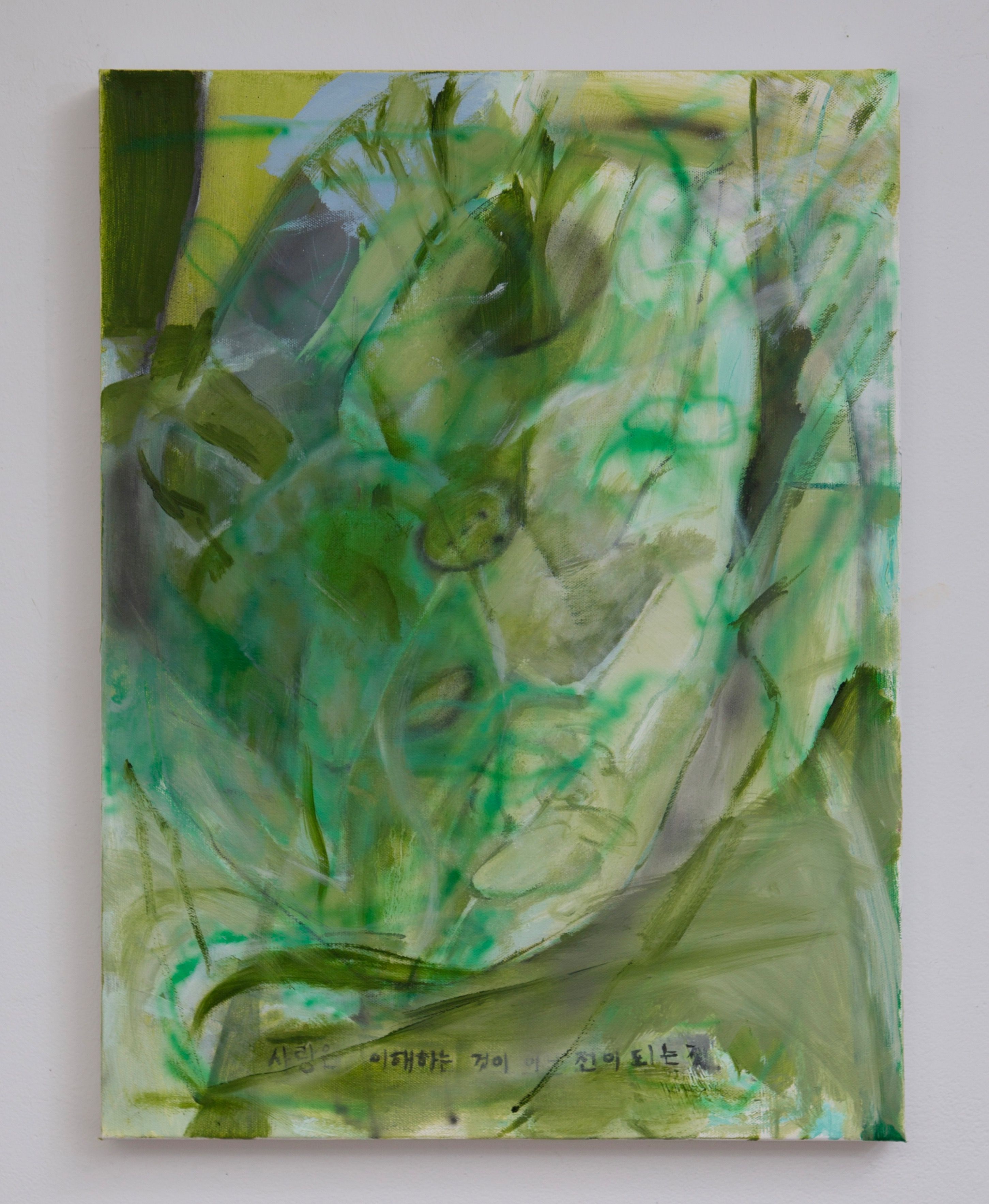
That is great advice. I think sometimes as artists we can overthink it. What is your studio practice like? Do you listen to music, or podcasts?
An interesting thing may be that I never sit. Chairs exist as palettes. I mostly listen to music that doesn't have any lyrics. I like classical music. The annual report I got from Spotify last year told me that I was in the top 3% of the people who listen to music the most in the United States. I am very sensitive to music and if I listen to certain lyrics that could contaminate what I am trying to do. "Contaminate" could be a strong word, but it just feels that way.
There's an interesting line between influence and contamination. They both mean similar actions, but one is considerably more negative than the other. It's interesting how some people use music as a conduit for painting whereas for others it's just noise.
I like to think that when I paint, there is something to be protected. To protect it, I have to be disciplined. So that's why I think outside impact could be contaminating. But I think influences are the ones that you can be mindful of and use appropriately. But contamination is something that smears into you. Without you realizing it and becoming a part of what makes decisions for you. So I try to stay a little bit sensitive about that.
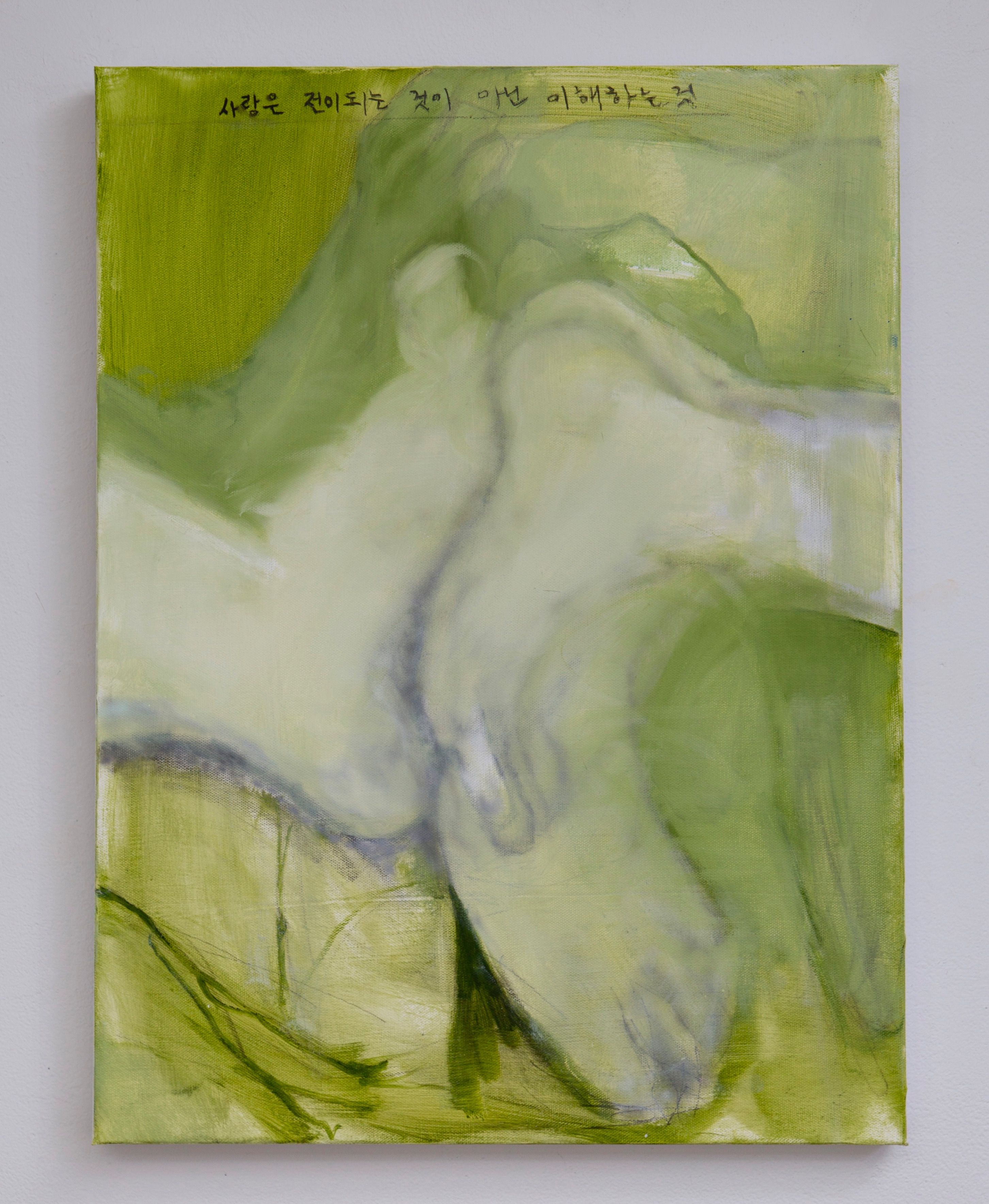
No, that totally makes sense. Speaking of influences, which artists are you looking at? Or do you have any artistic influences? Not contaminants, influences!
We have these kinds of conversations a lot in school, like asking who your artist references are, but I try not to look at artists when I'm making work. But I do like going to museums and galleries. So I really like Albert Oelhen. I used to say that I really liked Tracy Emin. But not so much anymore.
We won't tell her.
Please don't, she used to be my favorite artist. But then a lot of people told me that my paintings reminded them of Tracy Emin paintings, so I thought maybe I should stop looking at her work.
As an artist it is important to find your own voice and honor it. But at the same time, it's important to look at what people have done before. It's all about balance. When you're not in the studio, what do you like to do?
The thing about me is that I'm kind of a boring person. I don't drink. I don't have much of a social life. I just read, write and go out to drink coffee. I work at a gallery and teach. And I like going to the beach.
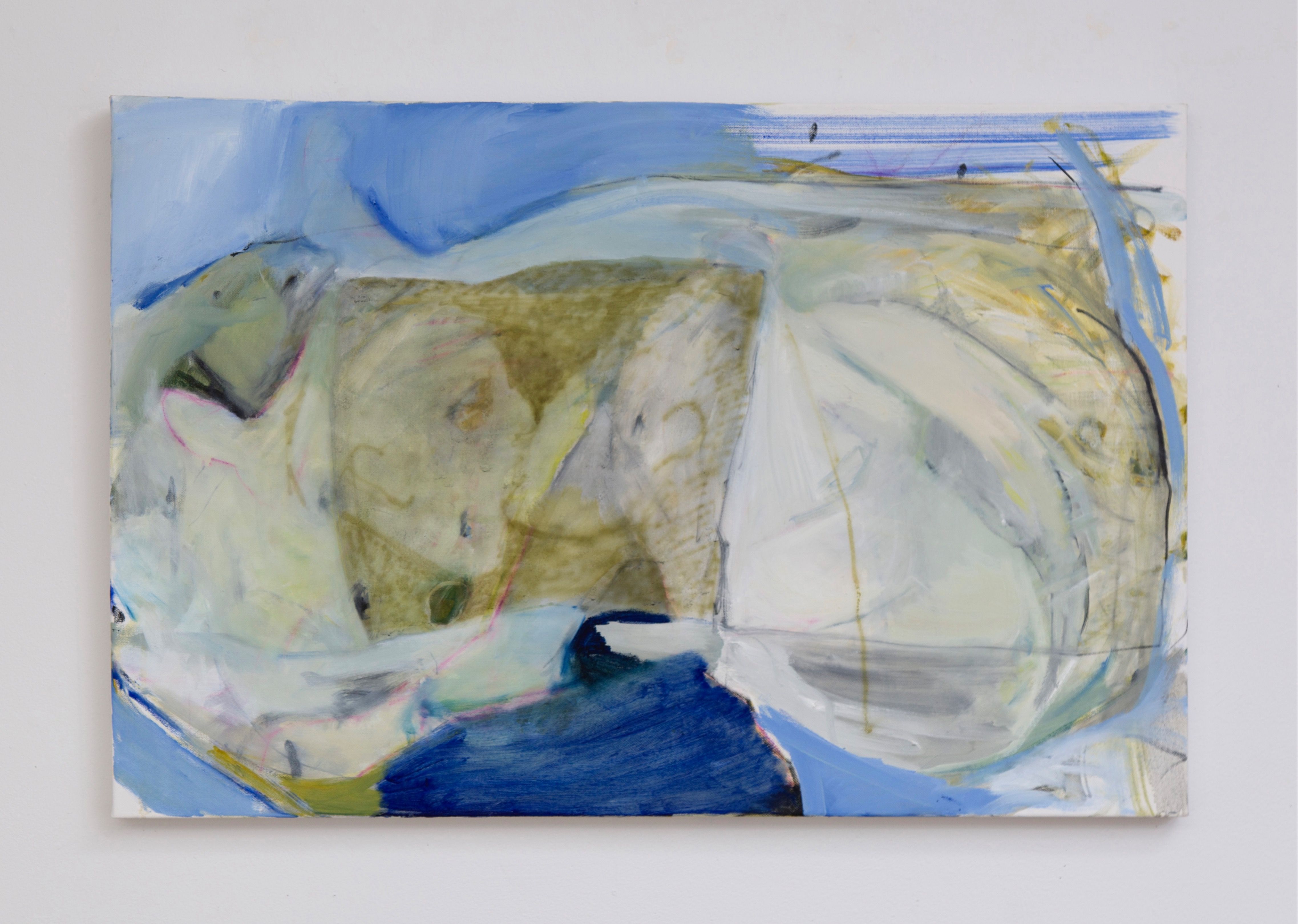
That all sounds great, you definitely have a life! It doesn't sound boring. And I don't think that drinking it makes people interesting, at all. I have one last question prepared and it's really hard. What's your go-to karaoke song?
I have this huge anxiety about karaoke because I used to rap in college. So it's almost PTSD for me to go onstage because I am so embarrassed of my past.
No way. Wait, tell us more.
I mean, I first got into it because I really liked listening to rap throughout my rebellious teenage years. There was this really famous club in my college. It was well known even outside of school because a lot of Korean rappers started at that club. So I joined without putting much thought into it. I auditioned, and people were telling me that I was good at it. So I became very devoted to it. I almost got kicked out of the school because I wasn't going to classes and I was only rapping. I was doing concerts around my college area. Then I regretted it so much. But that’s a whole other story. Now my cringy past haunts me. So I don't go to karaoke.
That's fair, but it sounds like a really cool hidden talent. I would love to hear you rap someday if you feel comfortable and happy performing again.
I hope that never happens. But I do think it's connected to how I started writing. By writing lyrics, which turned into poetry, which turned into prose, which then turned into painting.